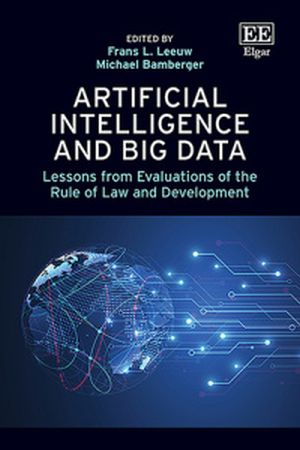
This timely book explores how artificial intelligence (AI) and big data contribute to the evaluation of legal arrangements, empirical legal research, technology law, legal theory and international law (defined in the book as ‘Rule of Law’) and social and economic development programs (defined in the book as ‘Development’ ) in both industrialized and developing countries. Interdisciplinary and international in scope, the book focuses on the Rule of Law and Development, and compares how AI and big data are used in each of these fields, and how each could learn from the approaches used in the other. Issues of ethics and bias in the use of AI are also addressed and indicators of the growth of knowledge in the field are discussed.
Bringing together a diverse array of leading academics and practitioners from across the globe, the book explores the range of applications of AI and big data in Rule of Law and development evaluation, identifies differences in the approaches used in the two fields, as well as differences in the AI-related issues addressed in industrialized nations compared to those addressed in Africa and Asia.
Artificial Intelligence and Big Data is an essential read for researchers, academics and students working in the fields of Rule of Law and Development, and researchers in institutions working on new applications in AI will all benefit from the book’s practical insights.